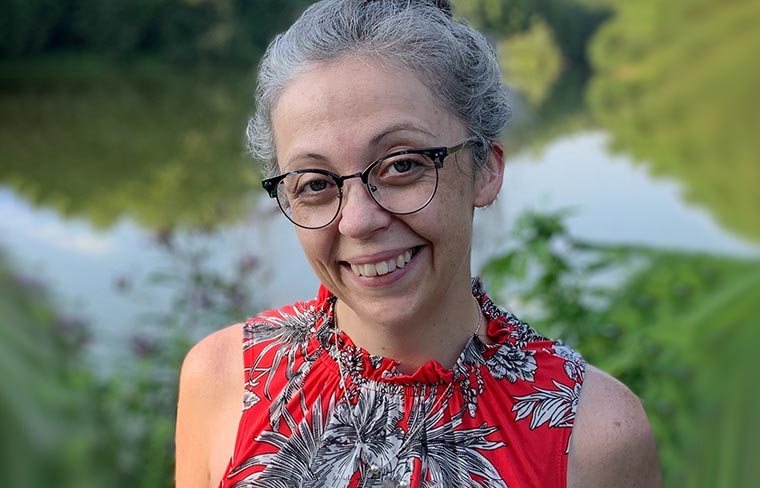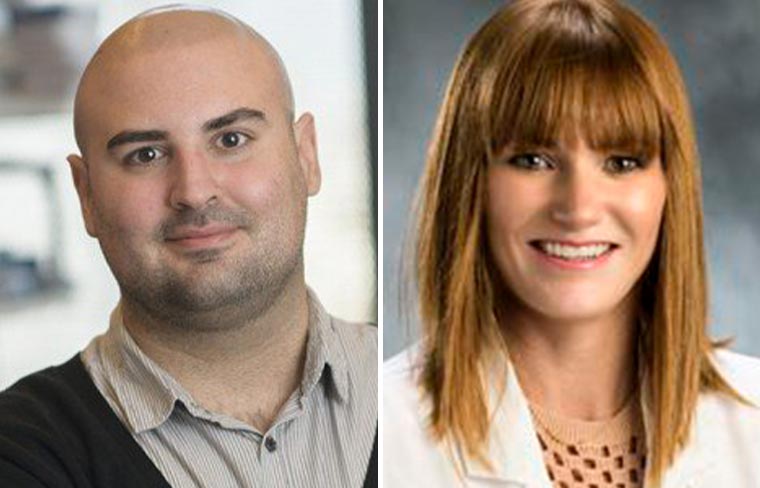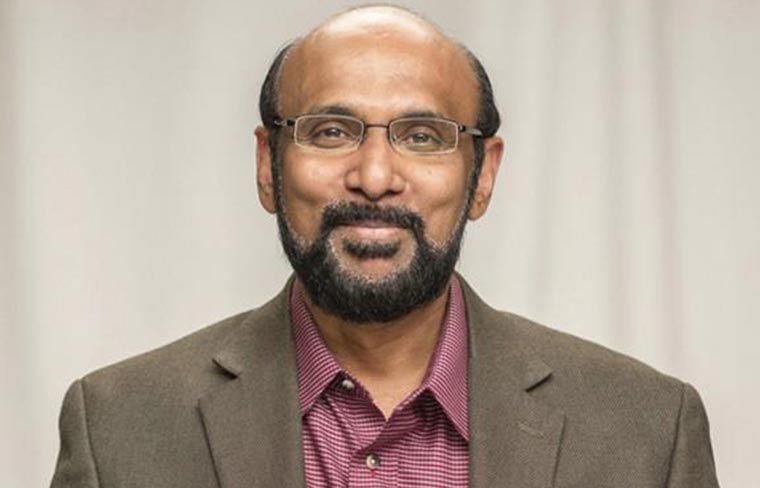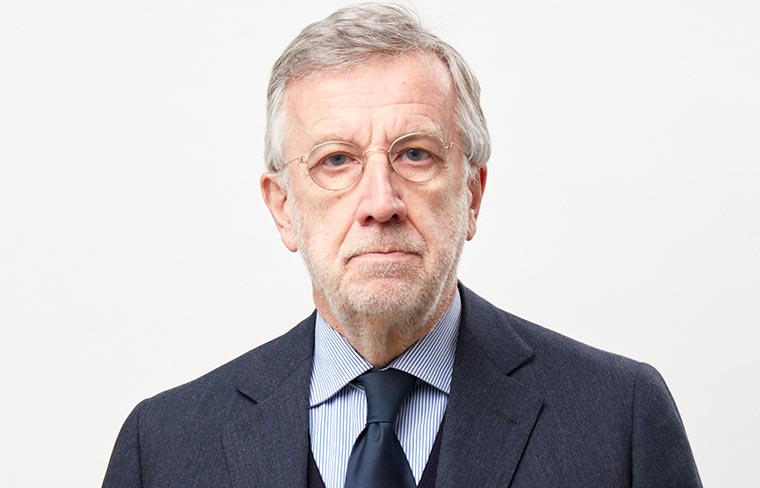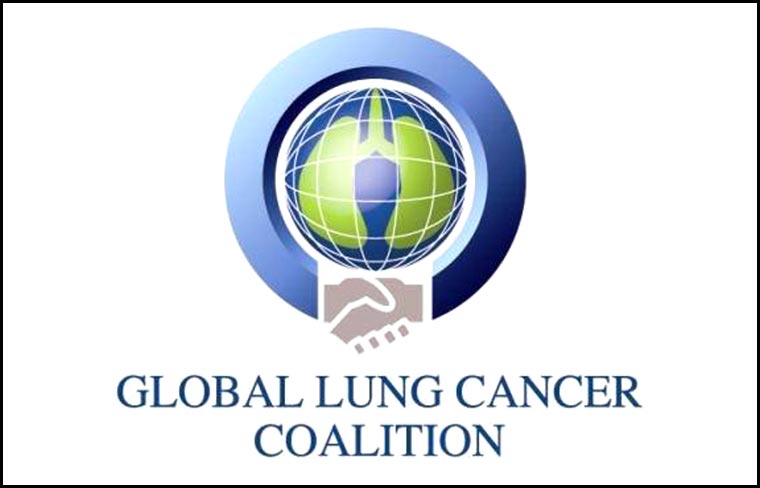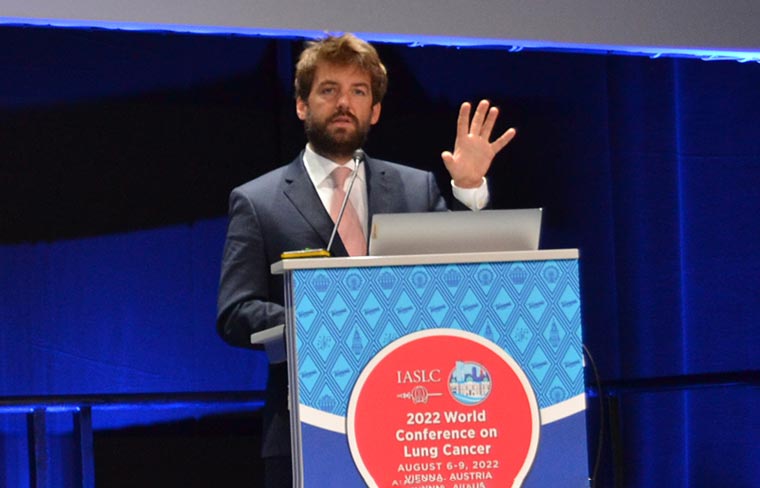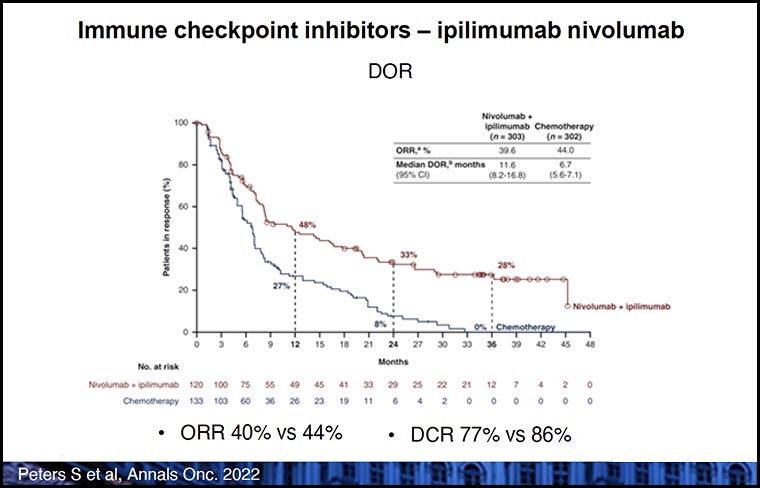2022
-
Unclear Informed Consent Forms May Be a Barrier to Trial Participation
Research presented during WCLC 2022 shows patient-centered summaries may help potential participants to better understand the benefits and risks of clinical trials.
-
Get Up to Date on SCLC Brain Metastases, Neuroendocrine Tumors
Experts evaluate available evidence comparing various strategies, including prophylactic cranial irradiation vs. surveillance, stereotactic radiosurgery vs. whole-brain radiotherapy, and more.
-
Data Supports Smoking Cessation as Part Active Lung Cancer Treatment
Experts reviewed data that show smoking can reduce innate immunity and suppress the efficacy of anti-cancer agents, leading to poorer outcomes for patients who continue to smoke after their cancer diagnosis.
-
Survey of Women with Lung Cancer Reveals High Levels of Sexual Dysfunction
The SHAWL study showed most women with lung cancer have little or no interest in sexual activity and experience increased pain and discomfort during sex following their diagnoses.
-
Symposium Looks at Lung Cancer Technology Innovations
Advances in radiotherapy, robotic surgery, and artificial intelligence promise to change the practice of thoracic oncology.
-
Closing Plenary Addresses Access to Screening, Drugs
Profession challenged to double survival rates within 5 years. Improving screening, reducing barriers to treatments will be key.
-
Panel Summarizes Immunotherapy Decision-Making for NSCLC
During a WCLC 2022 education session, experts reviewed the evidence for multiple treatment strategies in various patient populations.
-
COVID-19 A Roadblock to Effective Lung Cancer Care in 2022
A joint session at WCLC explored the impact the pandemic has had on the prevention, diagnosis, and management of thoracic malignancies.
-
Plenary 4 Panel Examines Applications of Artificial Intelligence in Lung Cancer
While AI and machine learning are not likely to replace humans, ideally technology will enhance and expedite medical decision making.
-
New Approaches Improve Mesothelioma Outcomes
The term “malignant mesothelioma” is no longer acceptable and should be replaced by “mesothelioma” for all uses, pathology researcher says.








